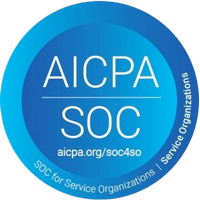The Assisted Living Nursing Shortage
You’ve probably already experienced the impact of nursing shortage problems. But just how bad is the worker shortage in assisted living?
Well, a survey by American Health Care Association & National Center for Assisted Living reported that in September 2021, only 4% of assisted living facilities were fully staffed, while 82% had moderate or severe shortages. As of February 2021, registered nurses were the fifth most in-demand jobs in America, as hospitals and healthcare facilities scramble to manage increased patient demand.
How Does the Assisted Living Nursing Shortage Impact Quality of Care?
The assisted living nursing shortage has tangible consequences. When healthcare facilities are understaffed, patients are at risk. Here are some of the ways that quality of care can be impacted.
More Mistakes
Nurses are human, and understaffing can increase the number of mistakes. When nurses have to tackle an outsized workload, they aren’t always able to move with the deliberate care that they would prefer. According to the NIH, nursing shortages lead to more errors and even higher mortality rates. In fact, overloaded nurses also experience higher rates of burnout and job dissatisfaction. This can increase turnover, which only adds to nursing shortage problems and strains your remaining healthcare staff.
Increased Turnover
When assisted living communities are short-staffed, the remaining workers have more to do. This can lead to burnout. Increased burnout can lead to turnover, which can then lead to even more burnout.
Needless to say, assisted living nursing shortage problems can create a vicious cycle. In 2021, healthcare worker turnover was around 41%. These high numbers affect many healthcare sectors, but in assisted living, the social impact is particularly pronounced. High turnover can harm a sense of community and continuity for long-term residents.
Mental Health and Community Fall by the Wayside
In an assisted living facility, residents and staff can be a patient’s whole community. Overloaded nurses may not have the time or energy to form meaningful relationships with their patients. A lack of community could lead to residents feeling isolated, or struggling with their mental health.
Since 40% of assisted living communities do not offer mental health care, they may not have the resources to deal with mental health crises stemming from a lack of community support. If a resident is unhappy, they may decide to look into other options, such as home health care.
How Can You Combat the Nursing Shortage?
The assisted living nursing shortage problems won’t be solved in a day, but there’s still definite hope for the future. Here are some things you can do to decrease staffing shortages at your own facility and provide your ideal quality of care.
Offer Competitive Pay and Benefits (to the Best of Your Ability)
We understand that it can be difficult or impossible to raise salaries. But competitive compensation is still a very direct way to help your nurses.
If you’re unable to increase your nurse’s salaries, there are still other ways you can support them. For example, flexible benefits can help nurses pick the plans that work best for them. Flexible benefits can be a great way to help your nurses live balanced lives, and prevent burnout in the long run.
Improve Company Culture
A healthy company culture is invaluable when it comes to attracting and retaining nurses. Unsure how to start improving company culture? First, decide on what you value as a company. Prioritize these values during the hiring process and beyond, starting from your very first candidate touchpoint (usually the job ad). Invest in your employees as people, and consider offering additional trainings, career workshops, and social events to boost morale.
Recruit to Retain
The best way to combat the nursing shortage is to hire smart and hire quick. Your hiring and onboarding process can both directly affect your retention rate, and an optimized process can help you attract the best candidates. A service like Apploi can help you hire candidates who care about your company and its values without sacrificing any additional time. Retention starts with better recruitment.
Better Hiring With Apploi
Apploi can help you tackle nursing shortage problems head-on with streamlined and effective hiring. Interested in learning more about how you can recruit, hire, and onboard healthcare staff quickly? Contact us today for a free demo of our end-to-end talent management solution.





